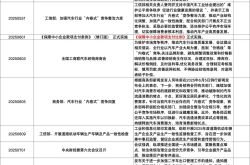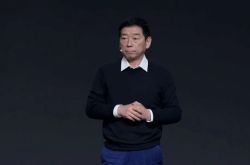Lenovo sues ZTE, revealing a bigger strategy
![]() 11/01 2024
11/01 2024
![]() 559
559
A Chinese company in the UK has sued another Chinese company.
On October 21, 2024, local time, Lenovo filed an intellectual property lawsuit against ZTE Corporation in the High Court of Justice in the UK.
Lawsuits between communication giants are often accompanied by disputes over patent licensing. However, the Gulf Stream Economic Review believes that business conflicts and interest entanglements are inevitable. Yet, under the current international situation, it is even more advisable for Chinese enterprises to unite.
01
A Long-distance Lawsuit
On October 21, local time, Lenovo filed an intellectual property lawsuit against ZTE Corporation in the High Court of Justice in the UK. Public information reveals that the plaintiffs involve six companies: Lenovo Group Limited, Lenovo (USA) Inc., Lenovo Technology (UK) Limited, Motorola Mobility LLC, Motorola Mobility UK Limited, and Lenovo Innovation Limited (Hong Kong). The defendants also involve six companies: ZTE Corporation, ZTE (UK) Limited, Nubia Technology Co., Ltd., and three UK distributors: Gamegeek Limited, Livewire Telecom Limited, and EFones.Com Limited.
As of now, details such as the patents involved in the case and the specific claims have not been disclosed, and Lenovo has not issued a public statement on the matter.
On October 30, ZTE Corporation officially responded: "We find it hard to understand but respect Lenovo's decision to file a lawsuit in the UK. This lawsuit will not change ZTE's determination to protect its legitimate rights and interests." It is reported that ZTE and Lenovo have been negotiating on patent licensing issues for several years.
In fact, not only ZTE but also this incident is somewhat illogical:
Firstly, Lenovo bypassed China's judicial authorities directly. Currently, China has formed a diversified intellectual property protection system. Like the patent dispute between Huawei and Xiaomi a few years ago, Huawei did not sue Xiaomi for infringement but initiated an administrative ruling on Xiaomi's major patent infringement disputes with the National Intellectual Property Administration. Within just half a year, both parties reached a global cross-licensing agreement on patents, which was both convenient and rapid.
With such high efficiency, why didn't Lenovo use it?
Moreover, multiple forces, including the Chinese government, courts, and industry organizations, are actively leading the "global licensing rule governance and judicial jurisdiction competition." Why did Lenovo choose to sue in the UK instead of China? Does this reflect a certain level of distrust?
So, is it because Lenovo is familiar with the UK courts and aims to gain more benefits?
Not really. The UK is not familiar with either Lenovo or ZTE. Public information shows that in August this year, Lenovo's revenue in the Chinese market accounted for 22% of its total revenue, while the combined revenue from the European, Middle Eastern, and African markets was only 25%. In 2023, Lenovo's mobile phone shipments in the UK accounted for only 1.5% of its total shipments. Similarly, ZTE's revenue in the Chinese market accounted for 68.9% of its total revenue, while the combined revenue from Europe, America, and Oceania was only 14.2%. The UK is not a major market for ZTE, and its revenue share has been minimal in recent years.
Moreover, UK judges cannot consider the reality in China at all. The reason is simple: both are purely Chinese companies, and most of their businesses are domestic. How can a UK court thousands of miles away understand the true situation of China's communications market and make an objective and fair ruling?
More crucially, there is a significant imbalance in the number of standard-essential patents (SEP) held by both parties. Ideally, the plaintiff should have more patents, and the defendant should have fewer. However, the opposite is true here. Whether it's 4G or 5G technology, Lenovo has a significant gap in patent holdings compared to ZTE. For example, in terms of the number of valid standard-essential patent families for 4G, Lenovo has less than one-seventh of ZTE's patents.
In summary, although Lenovo's lawsuit against ZTE in the UK appears to be an internal dispute among Chinese enterprises, the decision to sue in the UK instead of China is indeed puzzling.
02
The First Move
However, a deeper look reveals that Lenovo's decision to sue in the UK must have been well-thought-out.
This involves the UK courts' judgment status on global FRAND (Fair, Reasonable, and Non-Discriminatory) rates and the advantages of UK law in handling standard-essential patent (SEP) disputes.
Firstly, the UK courts have a "unique" preference for FRAND judgments: they are enthusiastic about setting global licensing rates. The condition for issuing an injunction is compliance with court judgments. Over time, FRAND judgments made by the High Court of Justice and the Commercial Court in London have influenced global precedents.
For example, in the Lenovo v. IDCC case, the Court of Appeal of England and Wales (EWCA) issued a second-instance judgment in July this year, requiring Lenovo to pay a usage fee of USD 0.225 per cell site for InterDigital's 3G/4G/5G patents. The total global patent royalty is closer to Lenovo's offered price of USD 80 million than InterDigital's claim of USD 337 million. Note that the former is merely a fraction of the latter.
In other words, InterDigital has no choice but to accept this small fraction. What's more serious is that once the rate is decided, it becomes global, and InterDigital cannot appeal to the US Supreme Court for redress. Additionally, if InterDigital refuses, the UK court may issue an injunction.
Furthermore, in the 2024 Lenovo v. Ericsson case, Lenovo requested a temporary injunction from the UK court, demanding that Ericsson be subject to a temporary injunction due to alleged patent infringement. The key point is:
Ericsson must either agree not to enforce its injunctions in other jurisdictions until a global FRAND rate is decided in the UK or sign a temporary licensing agreement before that decision.
Obviously, Lenovo's intention is to force Ericsson to withdraw its preliminary injunctions in Brazil and Colombia through the UK courts.
Secondly, the legal environment of the UK courts is favorable to global electronics enterprises like Lenovo. On the one hand, the UK courts rarely issue injunctions and have stable judgments on FRAND rates, which is attractive to companies that heavily rely on others' SEPs.
Based on the above two points, Lenovo has had conflicts with multiple SEP patent holders such as IDCC and Ericsson in courts in the UK, the US, Germany, and other countries in recent years. It has regarded the UK courts as a crucial venue for resolving SEP patent disputes, seemingly "forcing" the involved companies to accept the UK courts' global rate rulings.
Business competitions are inevitable, especially in the fiercely competitive communications field. However, the Gulf Stream Economic Review believes that:
Win-win cooperation is already a consensus, and mutual support leads to mutual success. Facing one of the most developed countries in the world, how to navigate or even find new paths is not a task that can be accomplished by a single enterprise but requires the combined efforts of Chinese enterprises moving forward together.
References:
Shangguan News: Lenovo sues ZTE Corporation in the UK! Latest response






